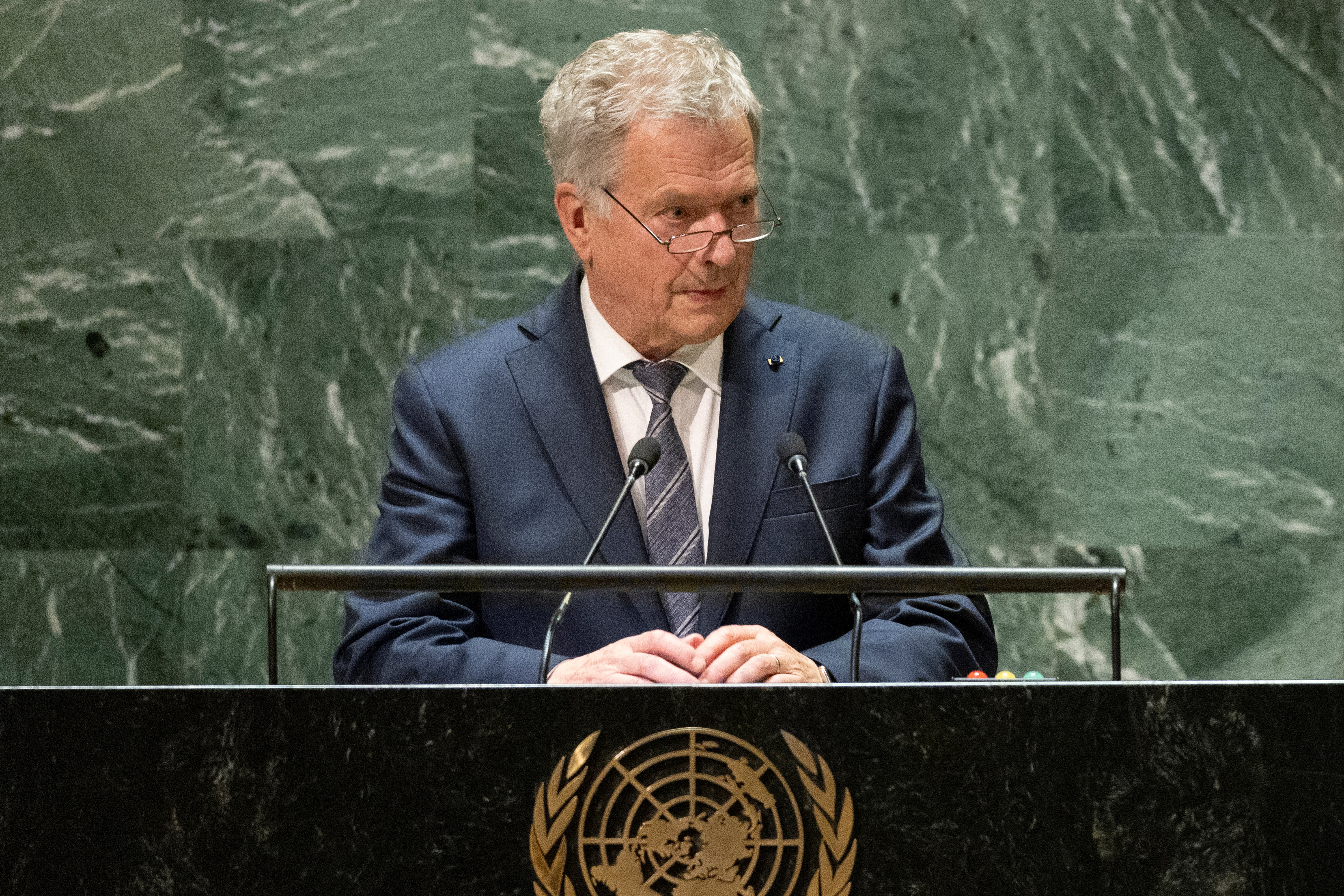
Finnish President Sauli Niinistö addresses the 78th session of the United Nations General Assembly at UN Headquarters in New York, US, September 20, 2023. REUTERS/Caitlin Ochs/File Photo Obtaining licensing rights
HELSINKI (Reuters) – Finnish President Sauli Niinistö said on Monday that it had become impossible to return asylum seekers who did not meet protection standards and that this must be taken into account when setting policies.
More than 500 asylum seekers, most of them from Yemen, Somalia, Syria and Iraq, have arrived in Finland via Russia over the past two weeks, prompting Helsinki to close half of its border crossings and accusing Moscow of transporting migrants to its borders.
“Deporting migrants who do not meet the asylum criteria has become impossible, so entering the border means staying in that country if you want,” Niinistö said during a state visit to Poland.
Niinistö called for finding a solution at the European Union level to stop uncontrolled entry into the passport-free zone.
“It is impossible for each country to try on its own to deal with a situation that might erupt in a neighboring country immediately afterwards,” Niinisto said.
Tommy Kivinjori, head of the legal department of the Finnish Border Guard, said that all those who arrived did not originally want to come to Finland, but were forced to seek asylum after Russian authorities closed the border gates behind them.
“They had no other choice in this situation,” Kivenjouri told Reuters.
Asylum can only be requested at two of the four remaining crossing points on Finland’s 1,340-kilometre border with Russia.
The Kremlin denied sending migrants and announced on Monday that it had lodged an official protest against the partial border closure, saying Finland’s decision to close border crossings reflected Helsinki’s adoption of an anti-Russian stance.
A police spokesman said on Monday that the situation was “normal” to the north at the Storskog border crossing between Norway and Russia.
In 2021, Poland, Lithuania and Latvia accused Belarus, a close Moscow ally, of artificially creating a migrant crisis on their borders by airlifting people from the Middle East and Africa and trying to push them across the border – an accusation Belarus has repeatedly denied.
(Reporting by Issi Lehto in Helsinki – Preparing by Muhammad for the Arabic Bulletin) Additional reporting by Terje Solsvik and Gwladys Fuchs in Oslod; Edited by Louise Rasmusind, Bernadette Böhm, and Jonathan Oatis
Our standards: Thomson Reuters Trust Principles.

“Lifelong food lover. Avid beeraholic. Zombie fanatic. Passionate travel practitioner.”
